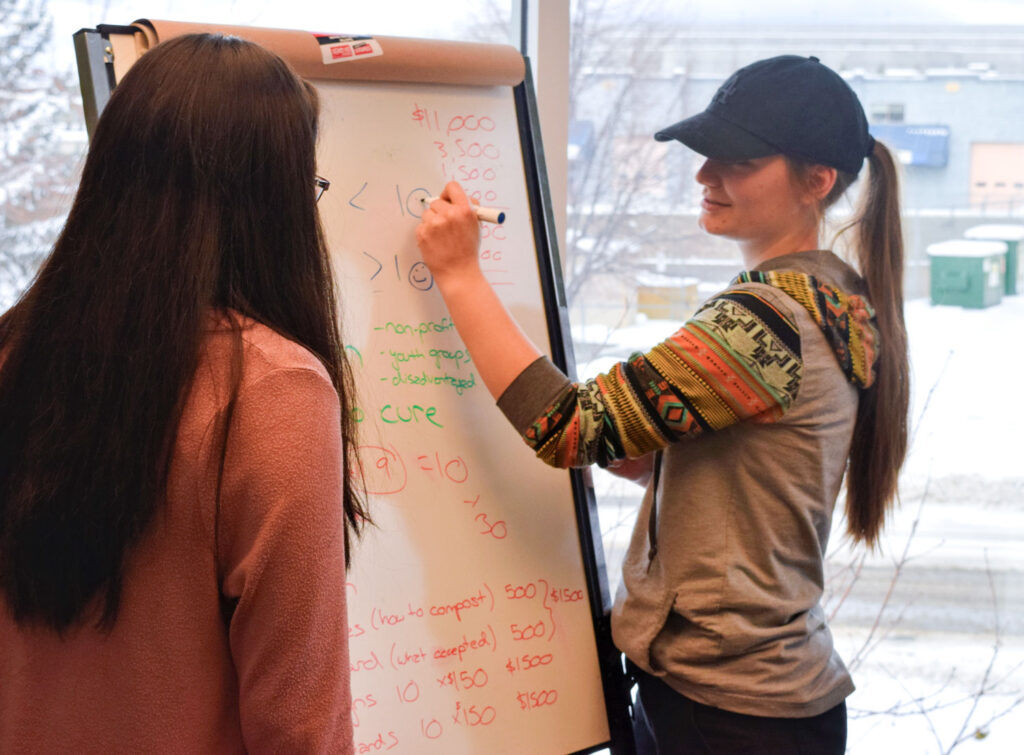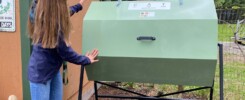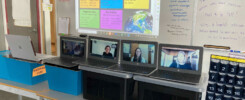Volunteering can improve self-esteem, help build a sense of community, and help you develop useful skills. However, each volunteer adventure has its own value and unique experiences; the Fraser Basin Council was no different. The Co-Creating for a Sustainable BC initiative helped my cohort members and I build relationships in the community while making a long-lasting, positive impact in our own community. The Co-Creating a Sustainable BC initiative (CCSBC) is a nine-month program that emphasizes many valuable themes, including teamwork, project planning, community building, and thinking about the long-term impacts of your actions. All these great qualities below combined create a fantastic experience that help not only make a great addition to your resume, but also was a very hands-on way to learn very valuable skills and create some new connections.
- Teamwork
In the workplace, skills are separated into hard skills and soft skills; hard skills are skills like excel proficiency, whereas soft skills are skills such as, leadership and, our current topic, teamwork. Both categories are extremely crucial to professional and personal success.For the CCSBC, we started with some classic ways to build comradery, like icebreakers, but also included some personal growth exercises and leadership dynamics. All these exercises helped us understand each other’s strengths and weaknesses, which ultimately led to a well-functioning team during our planning phase. Knowing our own strengths. and understanding what our cohort members’ strengths were as well, created a more fun and cohesive work environment.
- Project Organization
Before you need to plan an event or community service, you don’t totally understand everything that goes into the planning: The details, the timelines, and balancing everyone’s timetables (and that’s a hard one!). At CCSBC, they have a project facilitator that helps you and your teammates properly plan and organize your project while sticking to an appropriate timeline. The team would divide up tasks appropriately that would allow us to not only develop our skills, but also let us try new things and learn new skills.Working on each small and large step on a project allowed us to see the in-and-outs of what it means to bring change to our community and do it well with the help of someone more experienced in the industry.
Community Connections
Across the board, anyone in a professional setting will agree that the connections that they have made have helped grow or improve their business. It opens the floor to new ideas and solutions and can also make for new customers or clients.
During my experience with CCSBC, we reached out to people all over British Columbia, from the Cariboo to the Lower Mainland. This helped us learn more about our project topic and get the word out about our project to help further our impact within our community. This not only helped our cohort during the developmental phase, but our group was also able to provide feedback and help the current 2020-21 cohorts with their projects during their development. Connections ripple and ultimately make your team bigger, which is great when anything goes wrong (which it will!).
Proper Marketing
Marketing is another aspect that is very important to any project’s success. This particular skill ties in well with community connections; reaching out to those in your immediate environment and educating everyone in your scope allows for greater success. Marketing is not only using social media and articles to get the word out, but an often overlooked method is word of mouth; word of mouth is free marketing that reaches a broader audience, often some audiences that you may not have considered.
Luckily, you do not need to start from scratch with CCSBC. The project facilitator, the organizers, and program leaders will help you find connections and build the necessary relationships to generate the reputation you need.
Considering the Aftermath
Something that is often neglected when volunteering is considering what will happen when you leave the project. This can get particularly difficult if there are any websites or apps involved. But even the simple things can need a lot of maintenance; the project that my cohort worked on, for example, needed regular maintenance on composters that we handed out, but we also needed to consider what would happen to the end product of the composter. So, not only did we need to plan the current project, but we needed to consider the days, months, or even years following the initial conception.
Not planning ahead can have negative consequences on the community you are trying to help; this is a major problem, especially in voluntourism. Actions have consequences, and that can even apply to actions with the best intentions.
All in all, volunteering has some great advantages to your community. Finding the right organization for yourself can help build skills and connections that will be very advantageous to your future and be a great experience in the process. Fraser Basin Council is a great place to start this journey.
About the author:
Andie is a past participant in the 2019-20 Thompson Cohort of the Co-Creating a Sustainable BC initiative.



